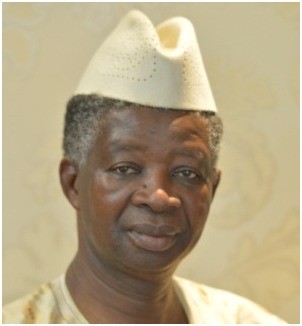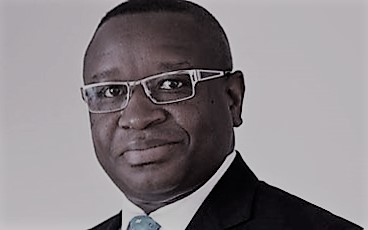The role of civil society in conflict prevention in Sierra Leone
Civil society’s visibility and influence in conflict prevention and peace building has grown globally. Civil society actors have increasingly become vital forces in discourses, initiatives and programmes that foster peace and security across the world. Specifically, civil society has been instrumental in the reconceptualization of security from a “state-centred” process to one that is “People centered”. This focus on people-centred security emanates from the belief that fundamentally the sustainable security of states can only be attained through the security of its people. This belief is shared in regions across the world that has experienced open conflicts and civil wars, which have ravaged communities and brought devastation to the lives of ordinary people. (Photo: Saa Matthias BENDU-FDID-SL, author)
West Africa has witnessed a number of protracted civil wars and intra-state conflicts. These Conflicts have resulted in millions of deaths, the displacement of communities, proliferation of small arms and light weapons (SALW), and the stagnation of growth and development in the region. The nature of these conflicts exposes and draws in local populations: In West African, (like Sierra Leone) conflicts are intricate, multifaceted and multi-party, and as a result it is impossible for state actors to prevent, manage or resolve them without the assistance and involvement of non-state actors.
Civil society in particular has been at the forefront of promoting localized peace building initiatives, initiating reconciliation processes, advocating for adherence to peace agreements and building capacities in peace education. In spite of playing such laudable roles, however, civil society still faces a number of challenges, ranging from poor organization among actors within the sector, poor funding for activities, governments’ mistrust and the often antagonistic interaction between civil Society and government.
In Sierra Leone Civil Society, the media, the government and the international community has made significant contribution and or progress in rebuilding the country and securing peace. Especially after the nihilist rebel war in 2002, key achievement to note include but not limited to; the peaceful conduction of democratic national elections. However, though the elections were generally peaceful, unresolved grievances and mistrust from the war and post elections violence still remain, of great significance, it is fact that political violence and intimidation are increasingly becoming part of the electoral process demanding post election reconciliation, it was as a result of the post- election violence that the international committee asked for the signing of Peace communiqué.
One may ask, what is conflict prevention?
Analogous to civil society, conflict prevention presents definitional challenges. It remains an ambiguous concept that has transformed over time. The former UN Secretary-General Boutros Boutros-Ghalidescribed conflict prevention as preventive diplomacy, an “action to prevent disputes from arising between parties, to prevent existing disputes from escalating into conflicts and limit the spread of the latter when they occur”.
In West Africa, the Economic Community of West African States’ (ECOWAS) Conflict Prevention Framework (ECPF) defines conflict prevention as: activities designed to reduce tensions and prevent the outbreak, escalation, spread or recurrence of violence. Conflict prevention strategies may distinguish between operational prevention (measures applicable in the face of imminent crisis) and structural prevention (measures to ensure that crises do not arise in the first place or, if they do, that they do not re-occur). The emphasis is not on preventing conflict per se (conflict being a natural consequence of change), but in halting its descent into violence. Civil society has also been described as the arena outside the family, the state and the market, where people associate to advance common interests. The notion of an arena where people associate to advance common interests has strong resonance in Sierra Leone as it enables the definition of civil society to include formal and informal groupings such as, Queen Mother associations, youth movements, market women, religious groups and the media.
As the political context in Sierra Leone evolved from post-independence era to autocratic (APC 26Years one party state), and military rule, to current endeavors to build democratic states, the role of civil society across sierra Leone have been important catalysts for end of the military rule, in case popular/ celebrated NPRC government, and the sturdy resistance to the notorious AFRC/RUF Junta, advocating for pluralist and open societies, and promulgating democratic and good governance. Civil society have also filled a vital role as providers of basic social services during the rebel war in wartorn communities, where viable public institutions and state apparatus are non-existent or considerably weakened, (vivid examples are NMJD and CCSL). It is factual, that during our nations anarchical period civil society become important actors in the process of mitigating conflict and building peace. I totally belief we should continue these good work. In Sierra Leone civil society must play a key role In promoting peace and preventing conflict, addressing socio-economic disparities in society, promoting Human and Women’s Rights, and contributing toward strengthening government organs, like the judiciary and the security sector, and because of our (CSO’s) proximity to the local population, it gave us the added advantage to mediation, reconciliation and other peace building initiatives. These is what we should be doing, instead of joining politicians in their rhetoric’s, mouth linking and misquoting/misinterpreting international charters/ bias selection few lines to condemn other politicians to please our own political “god fathers/mothers” or joining the chore of praise singers for project that have woefully failed and those that are just window dressing or white elephant just to collect few Leones especial so during our electioneering period. Any subtle campaign for any political party will be disservice to the citizenry of this nation, the same goes for unconstructive criticism and miss-informing the people.
We should know by now that the peace communiqué signed by the major political parties in 2009, was a yellow card shown to our politicians by the international community.
The writer, believes that it will be prudent for us, civil society at this moment to popularize this Peace communiqué to the citizenry of our beloved country in all our local languages if possible, and to constantly remained those who lust for power at all cost, about it. That should they in their unsatisfied quest for political power utter inciting statement that could plunge our nation into any other crisis they will not go free, as the national and international watchdogs are on the alert, monitoring and analysing ,every utterance they are making now and history will never ever forgive them. The same goes for us in the Civil Society, journalist, and religious leaders and whosoever… remember ours is fragile-peace.
Conflict early warning and response has been described as the sine qua non of conflict prevention.It consists of the systematic collection and analysis of information coming from areas of crisis for the purposes of anticipating the escalation of violent conflict, developing strategic responses to crises, and the presentation of options to critical actors for decision-making. The development of early warning systems has gained popularity across Africa; Sierra Leone is not an exception.
Against the backdrop that our country has just emerged from a nihilistic rebel war, unfortunate, inciting statement and unhealthy political statement are unacceptable, Foundation for Democratic Imitative and Development (FDID-SL), abhor and condemns any act that has the potential to undermine, and or to derail the collective efforts, of well meaning citizens of this country, together with the international community to consolidate an hard earned peace. True, political debate must go on, FDID, strongly belief it should be healthy and based on thematic issues bound for national development. The writer is of the opinion that government must implement the recommendations of Sheers-Moses Commission of Inquiry, to serve as a deterrent to impunity, should they fail to do so, it will clearly show of their insincerity in the fight against political intolerance and violence. Over to you!
Saa Matthias BENDU-FDID-SL
Stay with Sierra Express Media, for your trusted place in news!
© 2012, https:. All rights reserved.





